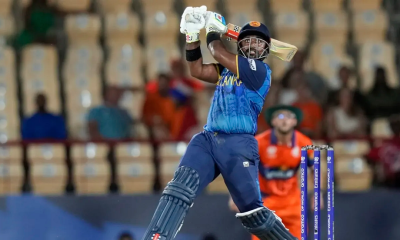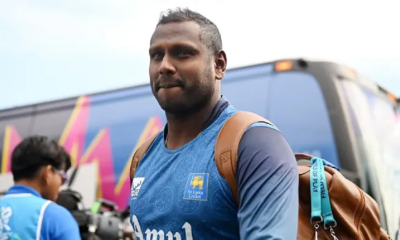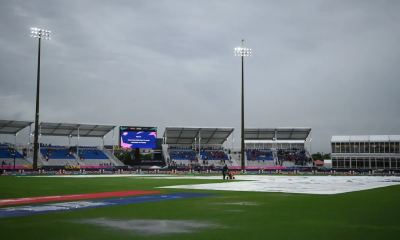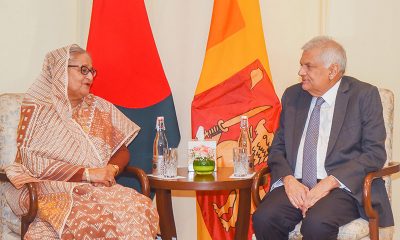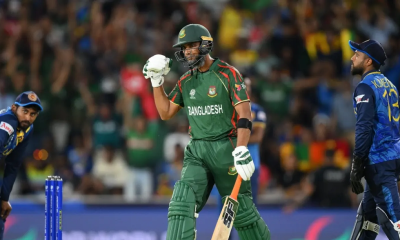Opinion
National mourning for Q. E II? Ranil’s rupture with the republic
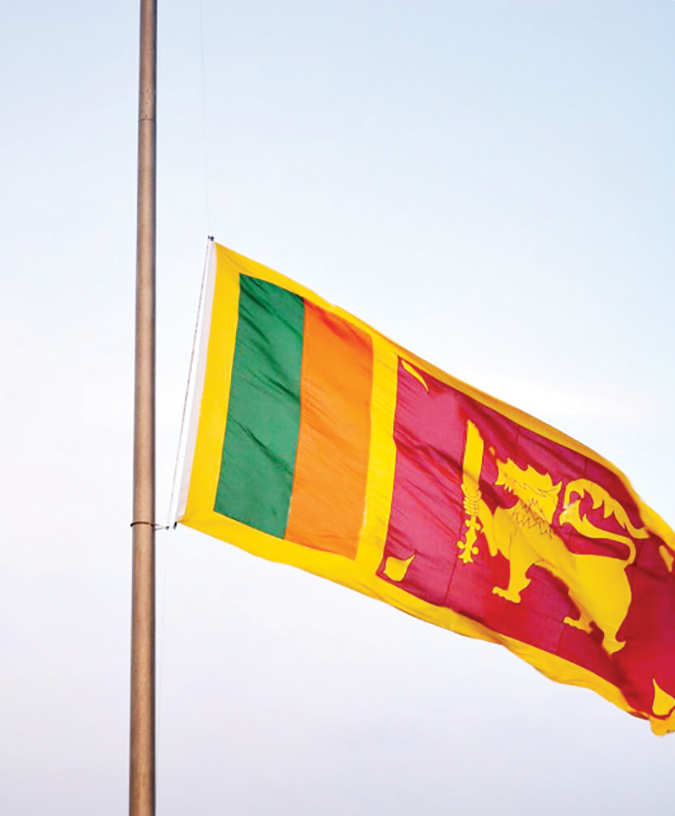
By DR. DAYAN JAYATILLEKA
The unelected President of Sri Lanka has declared that the Sri Lankan, flag on all public buildings, will be lowered to half-mast as a mark of respect for Queen Elizabeth II of Britain who died at the age of 96. The President intends to declare a day, or days, of National Mourning, which will be notified later.
“President Ranil Wickremesinghe, on the passing of Her Majesty Queen Elizabeth II, has given directives to lower the national flag in all public buildings half-staff, the President’s Media Division (PMD) says.
The period of national mourning is expected to be announced subsequently, the PMD said further in a tweet.”
This is a travesty. It is a particularly grotesque travesty as Sri Lanka sees the 75th anniversary of its Independence on the horizon. It is quite appropriate for the President to send his condolences and, if possible, to attend the funeral. But to lower the national flag on state buildings? And to declare a day, or days, of National Mourning? He just has to be kidding.
In the first place, Queen Elizabeth is not our queen. In the second place, Sri Lanka is a Republic, which is the exact antipode of a monarchy. Since the Sri Lankan state is a republic, there is no call whatsoever for state buildings to lower the Sri Lankan national flag to half-mast in honour of the British Queen, or any monarch anywhere.
The Queen was and King Charles will be the sovereign of the United Kingdom. Monarchy anywhere and everywhere at any time in history, acknowledged the monarch as the sovereign. When the monarchy receded in history but was retained ceremonially, the monarch was not so much acknowledged but conceded to be the country’s sovereign. Whichever the case, the monarch was coterminous, even synonymous, with ‘the sovereign’.
In stark contradistinction, in a republic the people are sovereign. A republic is defined by the fact that sovereignty arises from and ultimately resides in the people: ‘res publica’. This is explicitly clear in every republican Constitution from that of the USA (“We the People”) to Sri Lanka.
Why should Sri Lanka, as a state, lower its National Flag and observe days of National Mourning on the occasion of the death of a foreign monarch? Why should it do so especially when the monarch in question is the sovereign of the country from which Sri Lanka wrested its Independence, the 75th anniversary of which it is about to celebrate?
Whatever sentiments we may have for the departed Queen Elizabeth, mourning is a private and at best a social matter. Except for the usual condolences, it is decidedly not a matter for the Sri Lankan State and nation.
Mine is not a private sentiment of a left-leaning political scientist. The question of the relationship or lack thereof, between Sri Lanka and the British monarchy was made explicitly clear at great length in 1972 during the promulgation of the first Republican Constitution of Sri Lanka.
To pull back a bit, in his Five Lectures, the JVP’s founder-leader Rohana Wijeweera pointed to the fact that Ceylon was still ruled by the Queen of the former colonial power, Britain, a fact which for him, was proof of the incomplete character of our Independence. Wijeweera in turn had been influenced by and built on the criticism leveled by the traditional left in 1948, that what we had obtained was an inauthentic Independence and had merely graduated from a colony to a neo-colony.
In the aftermath of the April 1971 Insurrection, it was noticed that the insurrectionists had to be tried for the offense of armed rebellion against ‘the Queen’, which was the law on the statute books. In his submissions during the Criminal Justice Commission trial, Wijeweera pointed that out. The grotesque anomaly was immediately noted by society at large and that realization accelerated the decision to convert to a republican form of state.
The very form in which Sri Lanka converted to a republic signaled the end of its political relationship with the British monarchy. The Constitutional process chose not to proceed by way of the previous Constitution, despite its many merits, as that was a product of colonialism, ruled by a monarchy to boot.
The 1972 Constitution chose to consciously rupture with the previous, pre-independence Constitution. It was a dual rupture: from a colonial product to a product of an independent country, and from the Constitutional acceptance of the British monarch as the head of State, the sovereign, of our state, to that of the sovereignty of the whole people of this island. Hence, an ‘autochthonous’ and Republican Constitution, through a rupture.
The rupture was to underscore the lack of continuity with even the nominal role of the British Crown. The umbilical cord was surgically severed. What President Wickremesinghe has chosen to do, by declaring the Sri Lankan National Flag to be flown at half-mast on State buildings and to observe a day or days of National Mourning, is to reverse the process, symbolically and psychologically.
Already, we have departed from the content and spirit of republicanism by virtue of the fact that we have an utterly unelected leader. He was unelected by the people to the presidency and unlike his predecessor DB Wijetunga, who assumed the presidency in mid-stream, serving out the rest of the assassinated President Premadasa’s term, he was unelected to Parliament in the first place. Now, we are going one step further, backwards not forward, in making the death of the British monarch with whom we consciously, constitutionally severed the Sri Lankan state, an occasion for state and national mourning.
While I find this shocking, none of this really surprises me. The so-called Silent Revolutions of 1956 and 1970 were propelled by a national notion that Independence did not feel complete; that the process of de-colonization was unfinished; that there still remained an unacceptably large overhang of British colonialism. No one exemplified the neocolonial profile more than did Sir John Kotelawala, chosen by a ruling elite (not popularly elected) shaken by the Hartal of August 1953– the First Aragalaya— and the resignation of the PM. The year after the Hartal, in 1954, he hosted Queen Elizabeth’s visit to Ceylon. In 1955 he took the pro-Western line (actually that of John Foster Dulles) at the Bandung conference which was the zenith of anti-colonial Afro-Asianism, earning the local appellation ‘Bandung Booruwa’, the Donkey of Bandung.
In all this, Sir John’s advisor was Esmond Wickremesinghe, the father of President Ranil Wickremesinghe. As Prime Minister in 2001, Wickremesinghe had sought to commemorate the 500th anniversary of the Portuguese colonial conquest, which was the cherry on the cake of his economic neoliberalism and appeasement of the fascist Tigers. The electorate evicted him and kept him out of office for 15 years. Now he’s back. As President. Truly, the apple does not fall far from the tree. The cycle is repeating itself and will end with a version of that earlier outcome.
Opinion
Jeffrey: Cartoonist par excellence

If there exists a print media personality who does not receive the due recognition and appreciation he rightfully deserves, it undoubtedly is ‘Jeffrey’ of The Island newspaper. The works of many a journalist have been frequently highlighted and appreciated but the capabilities and efficiency of personnel of the calibre of ‘Jeffrey ‘ are, more or less, taken for granted.
In every sphere of life, professional or occupational, there are people who function, not necessarily from behind the scenes, but nevertheless perform an equally efficient service, which in all probability goes unnoticed.
To be frank, even before reading the headlines of the Newspaper, as is customary now, my eyes seek for the Cartoon of the day. Indeed, a sight for sore eyes each morning, the lovable ‘Jeffrey’ makes my day.
Suffice to say that a ‘Good Job done man’ type of occasional pat on the back, to a person who puts his very soul into his work, would touch the only place where it matters the most – his heart. If a smile could work wonders, then how much further would a word of appreciation go.
‘Jeffrey ‘ has, time and again through his cartoons, aptly proven his innovative and creative skills to present factual depiction of current affairs, both local and global. His drawing pen effortlessly covers all boundaries, irrespective of whatever nature. On a previous occasion, too, I have openly commended his abilities, finding it difficult to fathom how he could convey pertinent incidents, normally requiring hundreds of words to express, with a single drawing.
To all intents and purposes, ‘Jeffrey ‘ ranks much higher and could be considered as a rare find when compared with the numerous others actively engaged in this particular field of professionalism.
In ‘Jeffrey ‘, The Island newspaper indeed has a Cartoonist par excellence!
Jeffrey, more power to your elbow!
WILLIAM PHILLIPSZ
Opinion
Anti-aging injection shows promise in re-growing knee cartilage

Scientists at Stanford Medicine have reported a discovery that could change how arthritis and joint damage are treated. In experiments on animals and human tissue, researchers found that blocking a protein linked to aging can restore worn cartilage in the knee and prevent arthritis after injury. The treatment works not by adding stem cells, but by reprogramming existing cartilage cells to behave in a more youthful way.
In aging mice, an injectable drug rebuilt knee cartilage that normally thins with age. In mice with knee injuries similar to anterior cruciate ligament tears, the same treatment prevented the onset of arthritis, a condition that often follows such injuries in humans. A pill form of the drug is already being tested in early clinical trials for age-related muscle weakness, raising hopes that a similar approach could one day be used for joints.
Human knee cartilage removed during joint replacement surgery also responded to the treatment. When exposed to the drug in the laboratory, the tissue began forming new cartilage that resembled healthy, functional joint cartilage. These findings suggest that cartilage lost to aging or arthritis might eventually be restored through injections into the joint or even oral medication, potentially reducing the need for knee and hip replacements.
Osteoarthritis affects about one in five adults in the United States and costs tens of billions of dollars annually in direct health care spending. Despite its prevalence, there is no drug that can stop or reverse the disease. Current treatment focuses on pain relief, physical therapy and, in advanced cases, joint replacement surgery.
The new therapy targets a protein known as 15-PGDH, which increases in the body with age. The research team classifies it as a gerozyme, a type of enzyme that contributes to the gradual decline of tissue function over time. Previous work from the same group showed that rising levels of 15-PGDH weaken muscles with age. Blocking the protein restored muscle strength and endurance in older mice, while forcing young mice to produce it caused muscle loss.
Unlike muscle, bone or blood, cartilage does not rely on stem cells to repair itself. Instead, cartilage cells called chondrocytes can change their gene activity. By inhibiting 15-PGDH, researchers found that these cells reverted to a more youthful state and began producing healthy cartilage again.
“This is a new way of regenerating adult tissue, and it has significant clinical promise for treating arthritis due to aging or injury,” said Helen Blau, professor of microbiology and immunology at Stanford and a senior author of the study.
There are three main types of cartilage in the body. Elastic cartilage forms flexible structures like the outer ear. Fibrocartilage is tough and shock absorbing, found between spinal vertebrae. Hyaline cartilage, also called articular cartilage, is smooth and glossy and allows joints such as the knees, hips and shoulders to move with minimal friction. Osteoarthritis mainly affects this last type.
The disease develops when joints are stressed by aging, injury or excess weight. Chondrocytes begin releasing inflammatory molecules and breaking down collagen, the main structural protein of cartilage. As collagen is lost, cartilage thins and softens, leading to pain, swelling and stiffness. Articular cartilage rarely regenerates on its own, and attempts to find stem cells capable of rebuilding it have largely failed.
In the new study, researchers compared knee cartilage from young and old mice and found that levels of 15-PGDH roughly doubled with age. When older mice were treated with a drug that blocks the protein, either throughout the body or directly in the joint, their knee cartilage thickened and regained function. Importantly, the new tissue was true hyaline cartilage rather than weaker fibrocartilage.
The results were equally striking in injured joints. In mice with ligament injuries, repeated injections over four weeks sharply reduced the likelihood of developing arthritis. Untreated animals showed high levels of 15-PGDH and developed arthritis within weeks. Treated animals moved more normally and placed more weight on the injured limb.
Detailed analysis showed that the treatment shifted the balance of cartilage cells. Cells associated with inflammation and cartilage breakdown became less common, while cells responsible for producing healthy joint cartilage increased markedly. This change occurred without the involvement of stem cells.
When human osteoarthritic cartilage was treated in the laboratory for one week, similar changes were observed. Levels of harmful gene activity fell, and signs of cartilage regeneration appeared.
The findings are encouraging but still early. While safety trials of a 15-PGDH inhibitor for muscle weakness have shown promising results, clinical trials focused on cartilage regeneration have yet to begin. Even so, researchers are optimistic.
“Imagine regrowing existing cartilage and avoiding joint replacement,” Blau said. For millions living with joint pain and stiffness, that possibility now seems closer than ever.
Opinion
Why is transparency underfunded?

The RTI Commission has now confirmed what many suspected — although the RTI Act grants it independence to recruit staff, this authority is rendered toothless because the Treasury controls the purse strings. The Commission is left operating with inadequate manpower, limiting its institutional growth even as it struggles to meet rising public demand for information.
This raises an uncomfortable question: if the Treasury can repeatedly allocate billions to loss-making State-Owned Enterprises — some of which continue to hemorrhage public funds without reform — why is adequate funding for the RTI Commission treated as optional?
Strengthening transparency is not a luxury. It is the foundation of good governance. Every rupee spent on effective oversight helps prevent many more rupees being wasted through inefficiency, misuse, or opaque decision-making.
In such a context, can one really fault those who argue that restricting the Commission’s resources conveniently limits disclosures that may prove politically inconvenient? Whether deliberate or not, the outcome is the same: weaker accountability, reduced public scrutiny, and a system where opacity is easier than openness.
If the government is serious about reform, it must start by funding the institutions that keep it honest. Investing in RTI is not an expense — it is a safeguard for the public purse and the public trust.
A Concerned Citizen – Moratuwa
-

 News1 day ago
News1 day agoBroad support emerges for Faiszer’s sweeping proposals on long- delayed divorce and personal law reforms
-

 News2 days ago
News2 days agoPrivate airline crew member nabbed with contraband gold
-

 News1 day ago
News1 day agoInterception of SL fishing craft by Seychelles: Trawler owners demand international investigation
-

 News4 days ago
News4 days agoHealth Minister sends letter of demand for one billion rupees in damages
-

 Opinion6 days ago
Opinion6 days agoRemembering Douglas Devananda on New Year’s Day 2026
-

 Features2 days ago
Features2 days agoPharmaceuticals, deaths, and work ethics
-
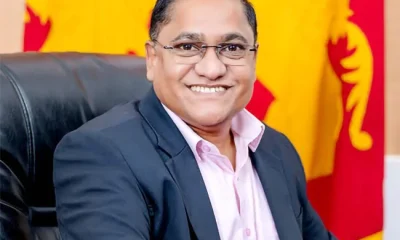
 News1 day ago
News1 day agoUS raid on Venezuela violation of UN Charter and intl. law: Govt.
-

 Features1 day ago
Features1 day agoEducational reforms under the NPP government


